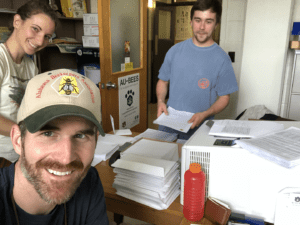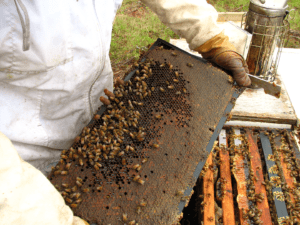And no, this isn’t an April Fool’s Day joke!

You’re busy! We know that. You’re out catching swarms, picking up packages, and checking your colonies!
So grab a coffee or tea, sit down, relax, AND…
The information that you provide will be invaluable to our understanding of honey bee health around the country.
As background, the BIP’s National Loss Survey was launched for the first time in 2006, and thanks to the many thousands of beekeepers who have participated since then, we have been able to document and better understand long-term honey bee colony loss trends. Check out the interactive state loss map as evidence!

In 2010, BIP’s National Management Survey was added to help us understand how management practices are potentially linked to colony survivorship. Thanks to your answers, we have been able to develop a dynamic management data tool. Feel free to play around with the interface. Want to know how colony losses compared between beekeepers that DID or DID NOT use a varroa treatment? Or what about the average age of comb in colonies? It’s all there!
This year, our colleagues at Auburn University in Sweet Home Alabama have coordinated the survey. We’re really happy to have them on board!
Please help us to develop more helpful tools for you by clicking the link below to take this years’ National Colony Loss and Management Survey.

If you would like to prepare yourself for our questions, or want to take some notes while you’re looking at your colonies, download this PDF to have a look at the 2017 – 2018 National Colony Loss and Management Survey Preview. Note that this preview should serve as an aid to the questions that are asked on the survey. Please, do not mail this preview version back to us. Please take the online survey!
Many thanks to all previous participants, and to all you new-Bees for taking some time out of your busy schedule to fill out this year’s survey.
Your contribution is supporting research efforts at a national scale that are aimed to promote the health of our honey bees!